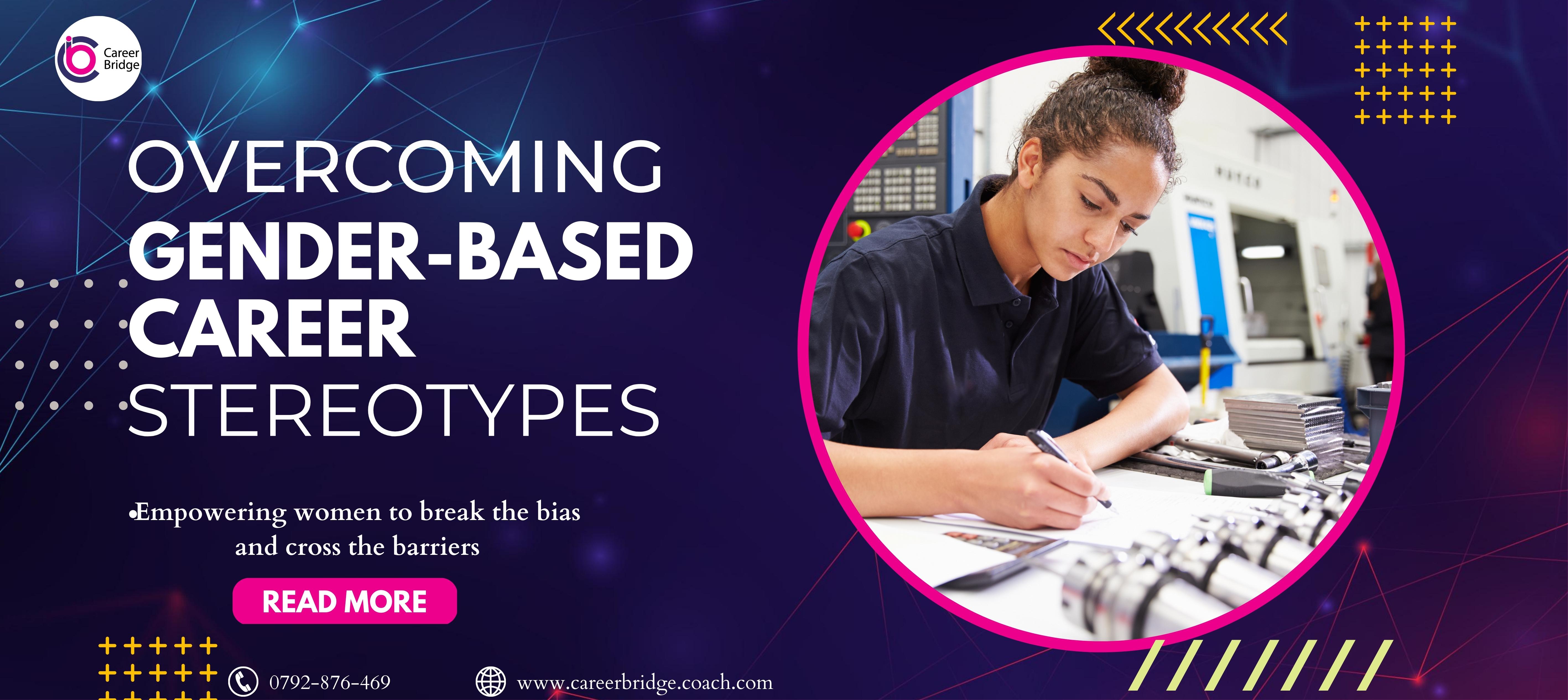
The rise of women in male-dominated professions signals a welcome shift in societal attitudes toward gender roles and career expectations. However, the journey is far from over. It's time to shatter the glass ceiling and overcome the pervasive stereotypes that dictate what men and women are "supposed" to do in their professional lives.
Women breaking down barriers and assuming positions of power and leadership is no longer a rare occurrence. It was truly an inspiring moment for women around the world when Liz Truss succeeded Boris Johnson as the Prime minister of the United Kingdom. Our country Kenya is also making positive strides in this sector. In the 2022 general election held in Kenya, we saw Nakuru county electing the highest number of women to the top leadership. The county produced a female governor, and a female senator. Additionally, five out of eleven members of parliament were women. We cannot afford to be content with the status quo. We must continue to test our limits to achieve greater heights. Yes, women can thrive in STEM courses and men are also equal to the task in female-dominated careers and caring professions.
So how do we change the narrative? How can individuals and organizations work to challenge and overcome gender-based career stereotypes and promote a more inclusive and equitable workplace culture?
1. Educate yourself and others
"Knowledge is power. Information is liberating. Education is the premise of progress, in every society, in every family." - Kofi Annan. By empowering ourselves and with knowledge of gender stereotypes and how they affect career choices, we can rid ourselves of the harmful effects of these stereotypes such as killing dreams and aspirations and reinforcing inequalities in workplaces.
2. Encourage Diverse Representation
The beauty of diversity is that it allows us to see and experience the world from perspectives that are different from our own. Let us strive to incorporate methods of promoting diverse representation in all career fields. For example, companies can develop strategies to showcase women in traditionally male-dominated industries and vise –versa. This not only enriches our understanding of others but also expands our ways of thinking and problem-solving hence promoting creativity and innovation in the workplace. Moreover, promoting positive role models and highlighting their careers is not only a way of challenging gender-based stereotypes but also a method of inspiring young people to take up careers that society has labeled as men or women only.
3. Challenge Gender Biases
Charity begins at home. One cannot speak against something that they actively participate in therefore; it is imperative to check your own biases. Let us not reinforce gender biases that are social constructions of the norm. Speak out against gender biases when you encounter them and encourage others to do the same. It is a good system of keeping yourself and others in check.
4. Advocate for Policy Changes.
Advocate for policies and initiatives that promote equal opportunities for men and women in the workplace such as gender quotas and flexible work arrangements.
Fun fact: Did you know that in 2003, Norway became the first country in the world to introduce a gender quota for corporate boards? The law requires that at least 40% of board members be women in publicly traded companies.
5. Support groups that advocate against gender bias and stereotypes in the workplace.
Numerous people and groups recognize the impact of empowering a lady, especially in areas where societal constructions limit them from pursuing big dreams and aspirations. Organizations have emerged to provide resources and opportunities for women to inspire them, and to make them see that they have what it takes to do what is deemed hard or manly.
Food for thought: Did you know that Sheryl Sandberg the COO of Facebook founded the Lean In organization to empower women to achieve their career goals by challenging gender bias and stereotypes in the workplace?
In the same breadth, we have organizations such as Women in Technology International, Girls who code, and the National Women's Law Center that were founded with the same objective. Remember, empowering a woman is empowering society at large.
6. Implementation of unprejudiced recruitment processes.
Individuals and companies should strive to ensure that hiring practices are free from bias and discrimination based on gender. Evaluation and recruitment should solely be based on one's qualifications, experience, and skills. It is commendable that organizations have taken to using gender-neutral language in job postings and using blind resume reviews. The purpose is to provide equal opportunities to all candidates. Moreover, training should be administered to managers and employers to address unconscious biases in hiring and promotion processes.
7. Public-Private Partnerships.
This refers to a collaboration between government agencies and private entities, such as educational institutions, to achieve a common goal or provide a service or product in this case promotion of gender equality in education. Governments can work with educational institutions such as schools and universities to challenge gender-based career stereotypes from an early age. This could be through encouraging ladies to take up STEM courses by providing opportunities such as scholarships and guaranteed work post-completion of studies.
To work towards positive change, we must acknowledge and address the negative aspects or problems that exist. Exactly how do gender-based career stereotypes hold us back? Let us look at the harmful effects of gender-based career stereotypes:
Summarily, let us break free from the chains that is gender-based career stereotypes. We all have a role to play in promoting inclusivity and equity within the workplace. It starts with the simple act of calling the stereotypes out whenever they occur. Let us work to promote equality in all job sectors by taking action against gender-based career stereotypes.
"Gender equality is not a women's issue, it's a human issue. It affects us all." - Ban Ki-moon.
Copy Right-All Rights Reserved-Career Bridge Limited